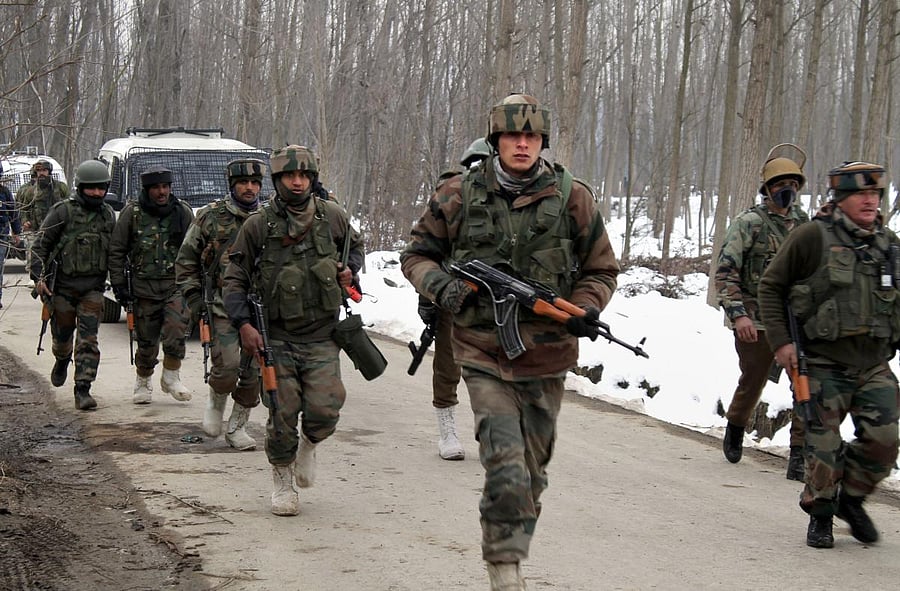
Service in the armed forces of India bestows the unique dignity and responsibility of retaining the prefix of the individual’s name with the military rank even after retirement. This symbolic sanction necessitates the seamless continuum of military values, decorum and expectations on the part of Veterans, which befits and behooves serving officers or other ranks in active service.
In the deeply hierarchical framework of the armed forces, the ‘seniority of age’ amongst Veterans lends itself to an automatically-implied position of reverence, mentorship and idealism that the serving soldiers looks up to. The scrupulously observed service do’s and don’ts, including the social graces, etiquette and the warranted apolitical stance in behaviour and conversations are equally mandated on the Veterans as they are on all serving men and women.
However, some genuine institutional concerns and inequities, coupled with the sudden explosion of the media platforms, has led to an unprecedented and explosive outpouring of emotions, opinions and positions on institutional issues by the Veterans that were till now within the conversational confines of the cantonments. The no-holds barred articulation of these concerns were initially led by the relatively apolitical saga of OROP (One Rank One Pay) protests and were soon extended into the hitherto ‘no-go’ domain of political preferences. Soon ‘newsroom warriors’ on primetime TV emerged, with bristling Veterans in their approved regimental regalia adding a dash of unquestionable nationalism and muscularity to the political discourse of the day.
The project of political opinion-shaping that has assumed a simplistic and polarising binary of ‘nationalism versus anti-nationalism’ dimension was shaped in great measure by the ‘cover fire’ afforded by some Veterans who were openly draping themselves in the flags of political parties whilst circumstantially posturing to speak on behalf of the entirety of the ‘institution’. Soon the passion and decibel levels of these Veterans went way beyond the institutional specificities like OROP or AFSPA.
Historically, both serving personnel and Veterans have taken positions that were often contrarian to the political instincts and urgencies of the day. However, the angst was usually restricted solely to matters that concerned the armed forces. From General Thimayya’s rancour with VK Krishna Menon, Field Marshal Sam Manekshaw’s insistence on time for planning the 1971 war, Lt General SK Sinha’s supersession, the overlooking of Lt General Hanut Singh for the Army Commander’s post on account of ostensible religiosity, etc, the dissonance never acquired overtly political overtones.
The deeply ingrained conscience of maintaining an apolitical stand is part and parcel of the ‘Officer-like-Qualities’, the spirit of which infects the entire rank and
file of the three services. This ‘barrackised’ approach of the armed forces certainly endeared them to the citizenry of the nation. However, it also triggered the parallel diminishment of the armed forces in the officialdom, ironically after the brilliant success of the 1971 Indo-Pak war.
The governance model of participative democracy is such that ‘interest groups’ of varied denominations like religious, casteist, regional or even administrative services, etc, need to coalesce and populate the national and state assemblies to retain their institutional relevance. Unfortunately, the Veteran community remained grossly underrepresented and the institution suffered for want of powerful ‘voices’.
The 1980s and 1990s did see a slight change, when the likes of Capt. Amarinder Singh, Wg Cdr Rajesh Pilot, Maj Jaswant Singh, Maj Gen BC Khanduri, etc, entered the political landscape and distinguished themselves in the new avatar. Importantly, none of them ever tried to usurp the imagery of the ‘soldier’ to be the sole prerogative of any one party, though their impact on the institutional woes was limited due to the fact that the scale and enormity of the diminishment had not emerged in public space, in its deserved proportion.
The 2014 election was the turning point in centre-staging and funnelling the Veterans’ angst towards a decided political preference, and the subsequent muscling of all related and unrelated issues (example, demonetisation) towards ‘duty towards the soldiers’ narrative, with invaluable help from some garrulous ‘newsroom-warriors’ who did the bidding for political parties.
Though all political parties have been complicit in short-changing the institution or using the Veteran communities as political props to advance their own agenda, sadly, today, the shrill political divide and societal polarisation has even consumed the Veteran fraternity.
Remaining oblivious to the political process and reality is certainly not an option as that further diminishes the institutional relevance. Like in mature Western democracies, the Veteran community must join the political mainstream of all parties to ensure overall presence, impact and propagation of institutional concerns.
However, the fine line is not to suggest or appropriate the entirety of the ‘Uniformed’ fraternity under one political umbrella, as no political party can truly claim to have been honest on the institutional promises or overall security imperatives.
Care must also be taken to deliberately avoid adorning military accoutrements like medals, caps, ranks etc, whilst expanding on purely political matters as it willy-nilly signifies an institutional endorsement of the said political stance. They could certainly hold and profess political positions in their individual capacity and on partisan lines, without posturing ‘institutional’ endorsement.
The entire edifice of the institutional respect across the length and breadth of the country is due to the years of measured conduct and restraint, both in and outside of uniform. This cannot be allowed to be milked recklessly in electoral times when sobriety, decency and inclusivity are sacrificed for immediate political gratification.
As the nation is in the throes of electoral frenzy, onus is now on the Veterans to maintain the ethos of apolitical moorings, specifically on matters and imagery concerning the armed forces. Both the nation and the institution benefit with more Veteran participation in politics, albeit with the requisite sensitivities, restraints and the spirit of Constitutionality that defines the quintessential Indian soldier.
(The writer is former Lt Governor of Andaman and Nicobar Islands and Puducherry)